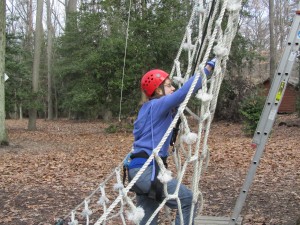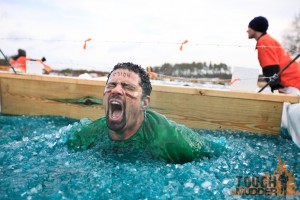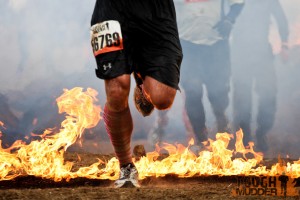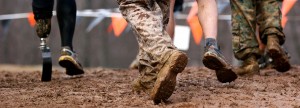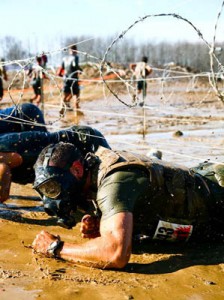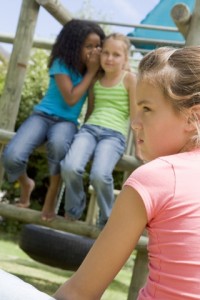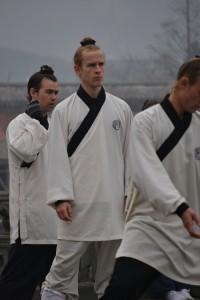 I returned to my master’s school in Wudangshan a week ago. The time since has been spent catching up with friends and shaking off jet lag. More than anything, however, it has been spent coping with what I shall call, “Week One Syndrome” (hereafter WOS).
I returned to my master’s school in Wudangshan a week ago. The time since has been spent catching up with friends and shaking off jet lag. More than anything, however, it has been spent coping with what I shall call, “Week One Syndrome” (hereafter WOS).
WOS is the inevitable period of adjustment necessary to go from part-time training, no matter how rigorous, to full-time. It goes like this:
The first day, you feel fantastic. Maybe your moves are a little rusty, but your muscles are fresh and loose and ready to go. Maybe your stances aren’t as low as you would like, or maybe your kicks aren’t as extended, but with all that stored-up energy, it just feels great to move.
Second day, however, you wake up in agony. You drift up out of the warm darkness of sleep, try to sit up, and—BAM!—hot knives in your thighs, abdomen, back, chest, calves, and everything else. Particularly sore are the muscles at the front of your hips. Trying to raise your leg to step into your pants is impossible. The test I use to gauge how traumatic WOS is going to be is stairs. If I can still walk up or down the stairs normally, one foot in front of the other, I am doing pretty well, even if it is a struggle. If I have to cling to the hand rail and haul myself up step by terrible step, it’s going to be a rough couple of weeks.
You want to rest, to recover, but day two has all the same training that did you in on day one. Except this time, your muscles are killing you, and on top of that, they have tightened into these angry knots like twisted tree roots. Day one, you could touch your toes. Day two, you wish you could touch your knees. You’ve lived through the WOS ordeal before, though, so you know that if you get yourself thoroughly warmed up and stretched out, you can make it through and even recapture some of the joy of motion that you felt in day one.
Day three and onward continue much like day two, but the muscle pain slowly falls into a weekly pattern, peaking in the training week and slacking in the rest day. Pain and stiffness are still at a high, but slowly they reach a barely manageable level, where they will remain for the duration of your training. At the same time, however, injuries that you had thought gone after your vacation start to crop up again, and your reserves of energy are being drained. By the end of three weeks or a month, your emotional and physical resources that you saved up during your vacation are running low, and every day of every week is a struggle to replenish your strength at as fast a rate as you burn it.
After that description you may not believe this, but it is amazing to be back. Maybe I am a sucker for suffering, but this place feels like home and there is nowhere I would rather be. I can feel myself calming down after the faster pace of life back in the U.S.
And as a sign of my growth, WOS gets a little milder every time I endure it.


